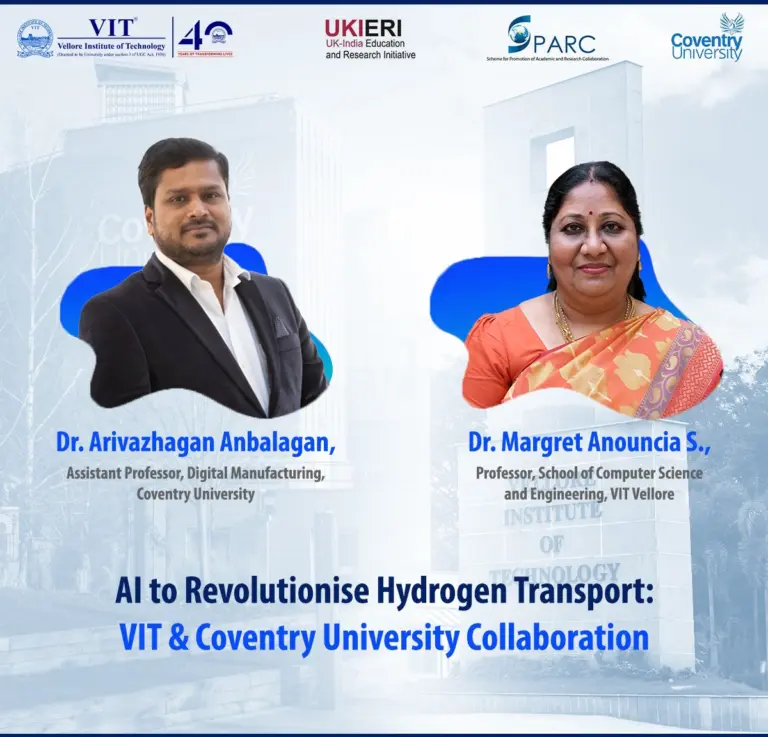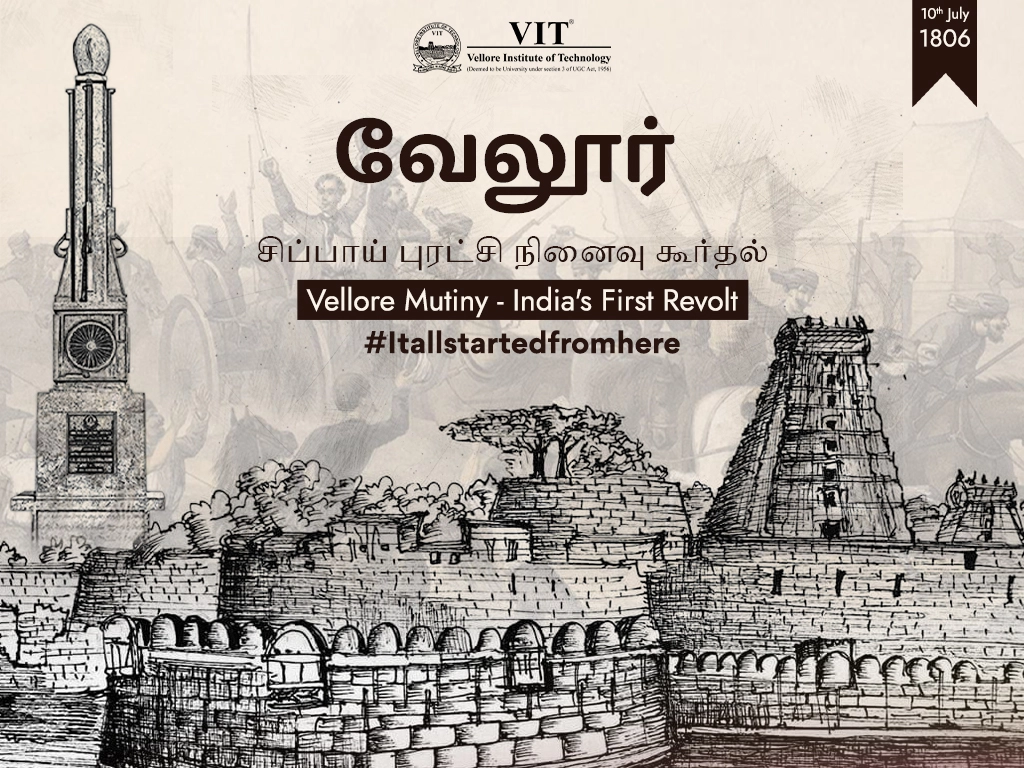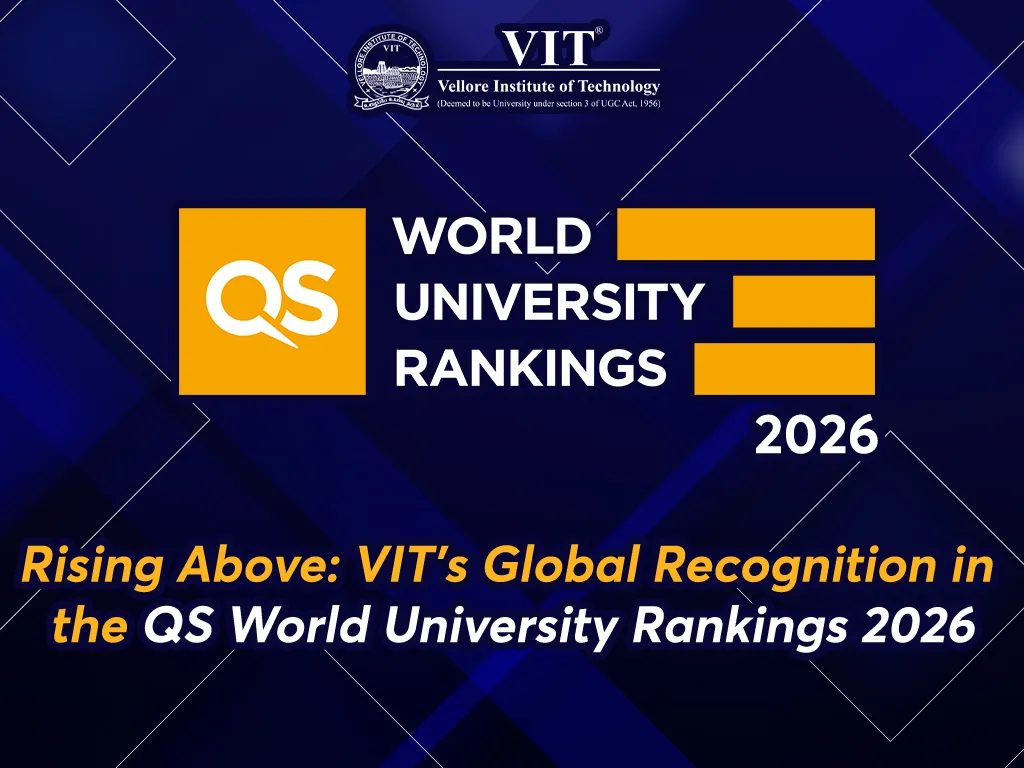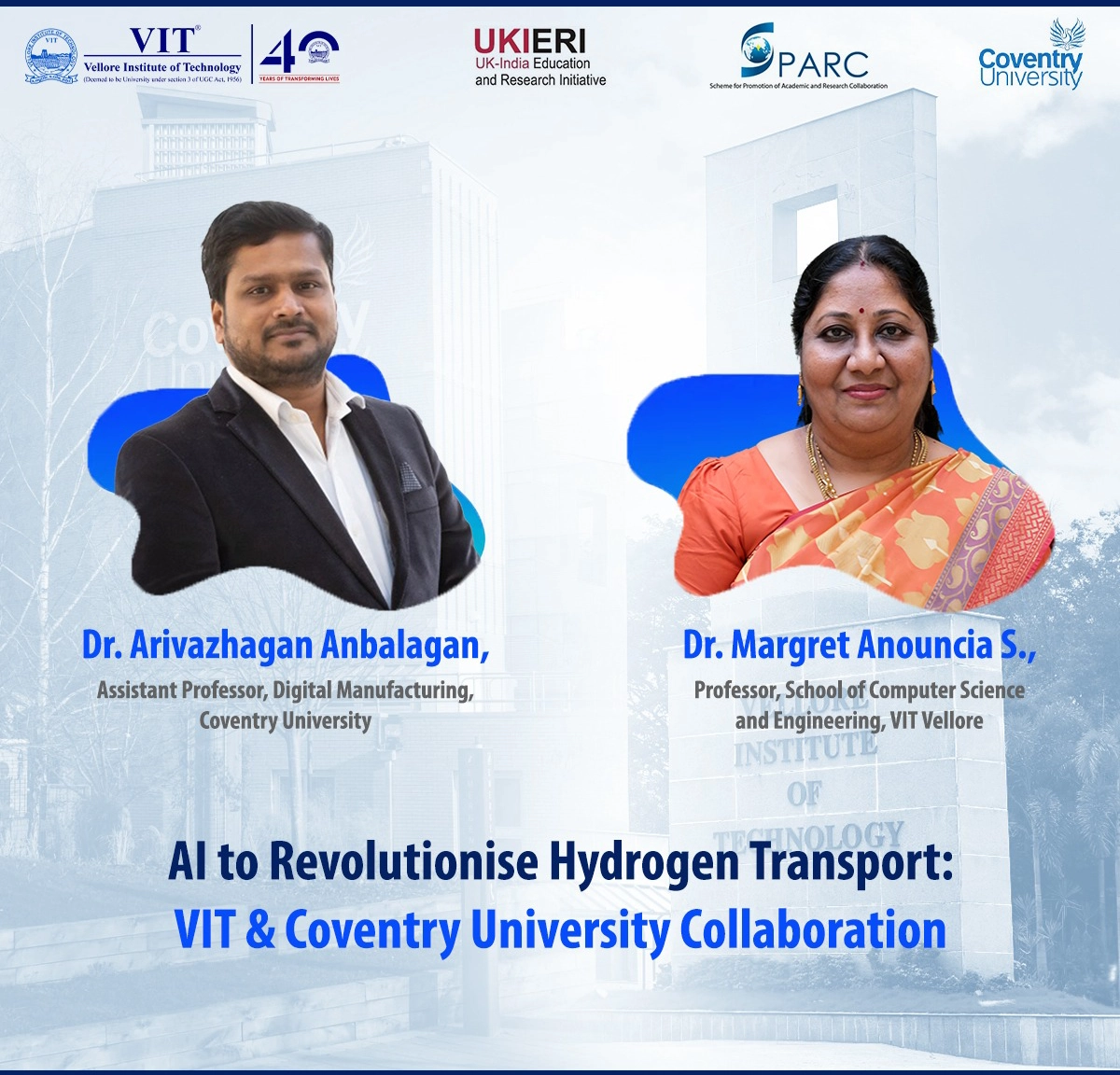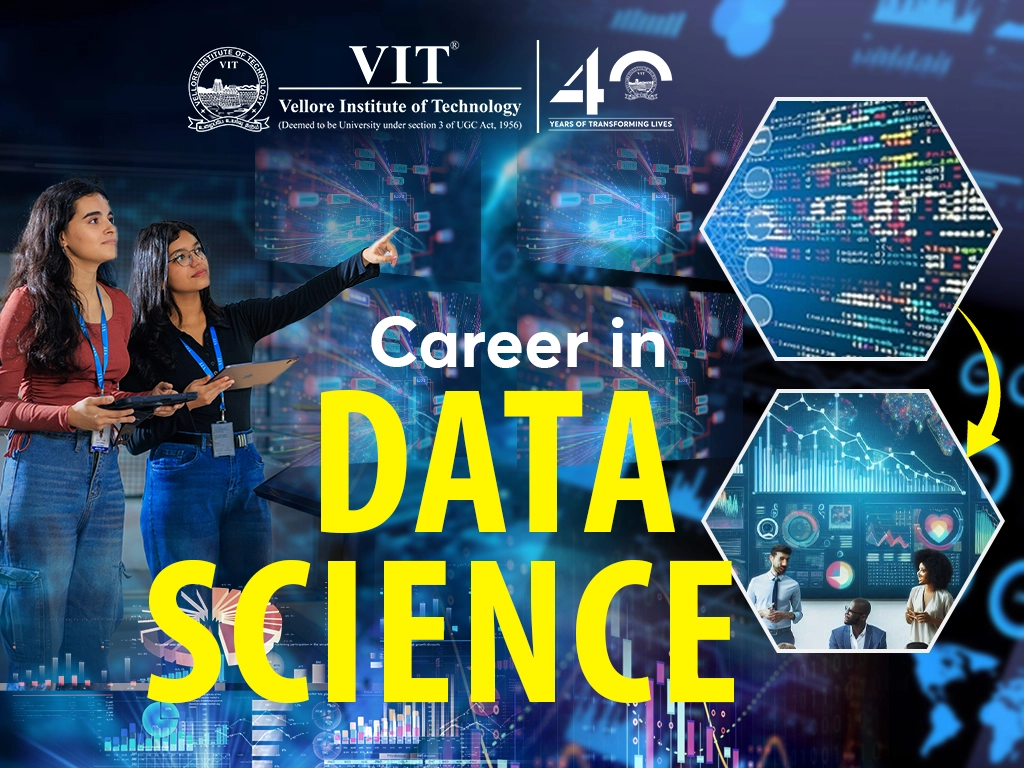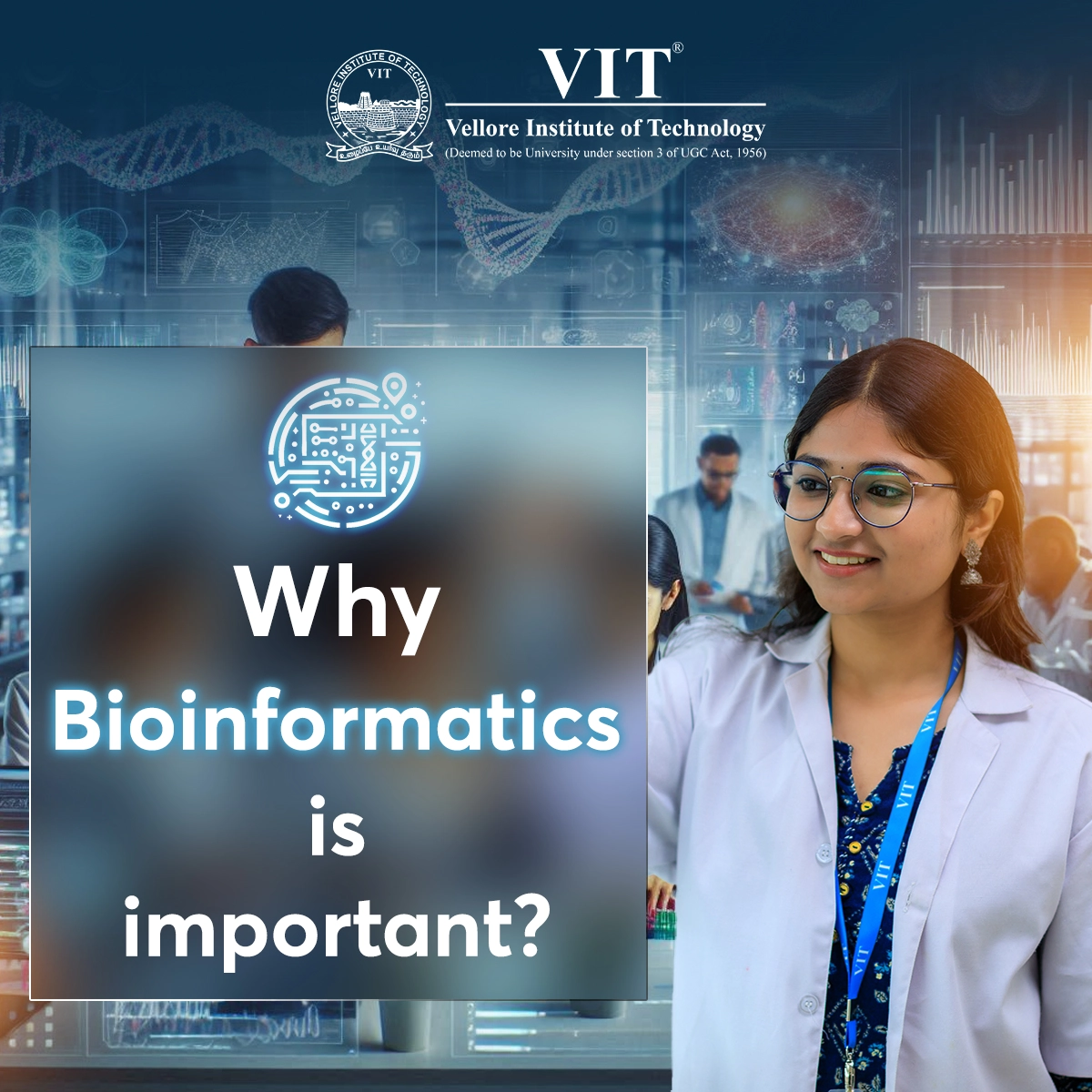The Future of Hydrogen Transport: VIT & Coventry University Turn to AI
“Our strategic partnership with Coventry University, facilitated through the signing of an MoU, signifies a shared dedication to advancing academic and research endeavours to drive global innovation and address sustainability challenges”. – Dr. Margret Anouncia S., Professor, Software Systems at VIT
A significant collaboration between Vellore Institute of Technology (VIT) and Coventry University is underway, focused on revolutionising hydrogen transportation through Artificial Intelligence (AI). The transportation of hydrogen, presents significant hurdles. This initiative addresses the growing need for safe and efficient hydrogen transport as hydrogen becomes increasingly important in clean energy technologies, driving the transition to net zero and the phasing out of fossil fuels. A key challenge the project aims to mitigate is Hydrogen Embrittlement (H2E), which compromises the integrity of metals used in hydrogen infrastructure.
Researchers from the School of Computer Science and Engineering & the School of Mechanical Engineering, Vellore Institute of Technology (VIT) are partnering with Coventry University’s Institute of Advanced Manufacturing and Engineering (AME) and the Centre for Advanced Low Carbon Propulsion Systems (CALPS) to develop innovative solutions using generative AI. This collaboration is made possible through funding from the British Council’s UK-India Education and Research Initiative (UKIERI), a programme designed to enhance research, leadership, and education collaboration between the UK and India.
The project, spanning two years and continuing until 2026, is being spearheaded by Dr. Margret Anouncia S, Professor, Software Systems at VIT, Vellore, and Dr. Arivazhagan Anbalagan, Assistant Professor in Digital Manufacturing at Coventry University. The outcomes of this research are expected to have a significant impact on the feasibility and safety of hydrogen as a clean energy carrier.
- - Gayathri Mohan

